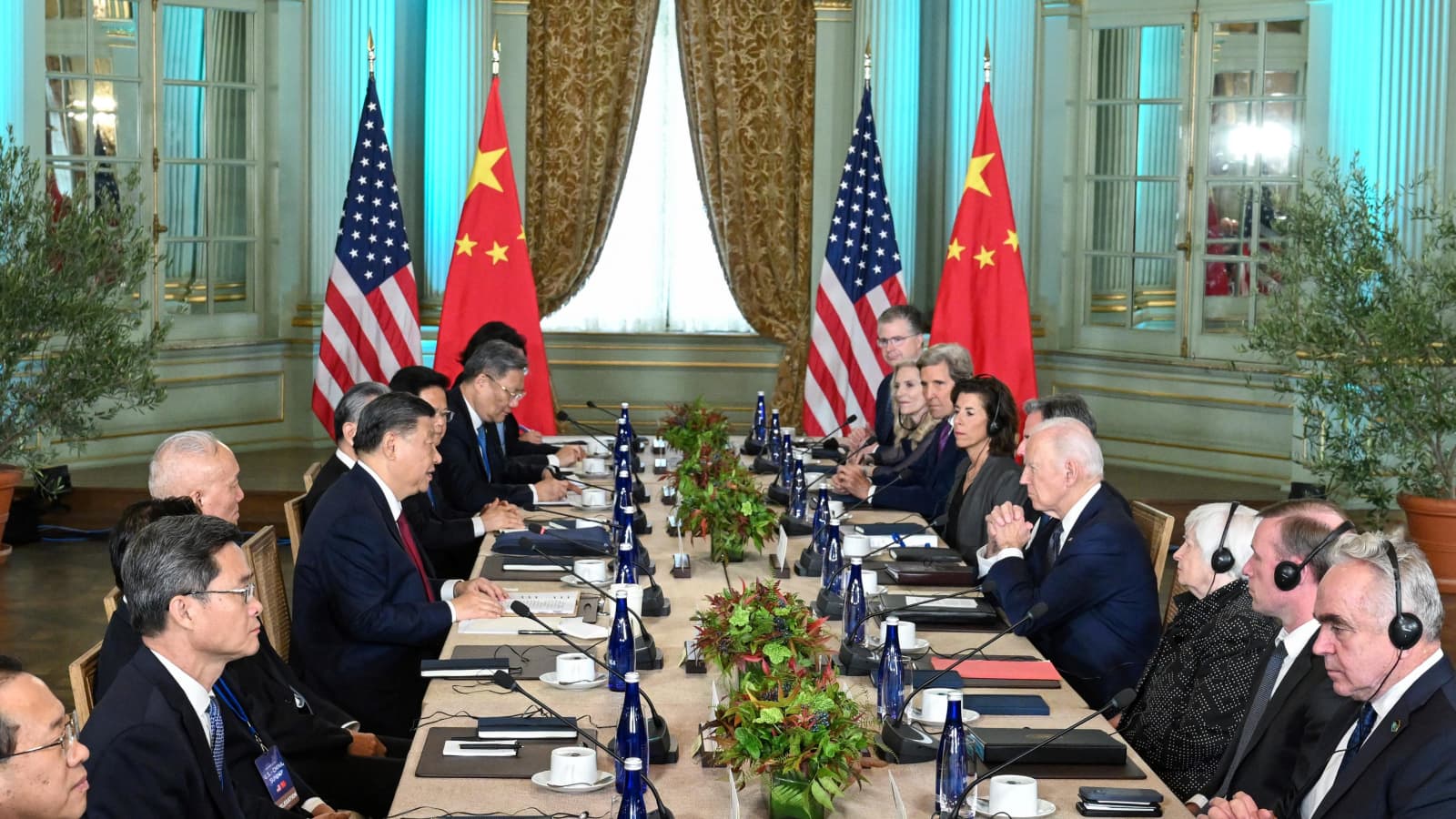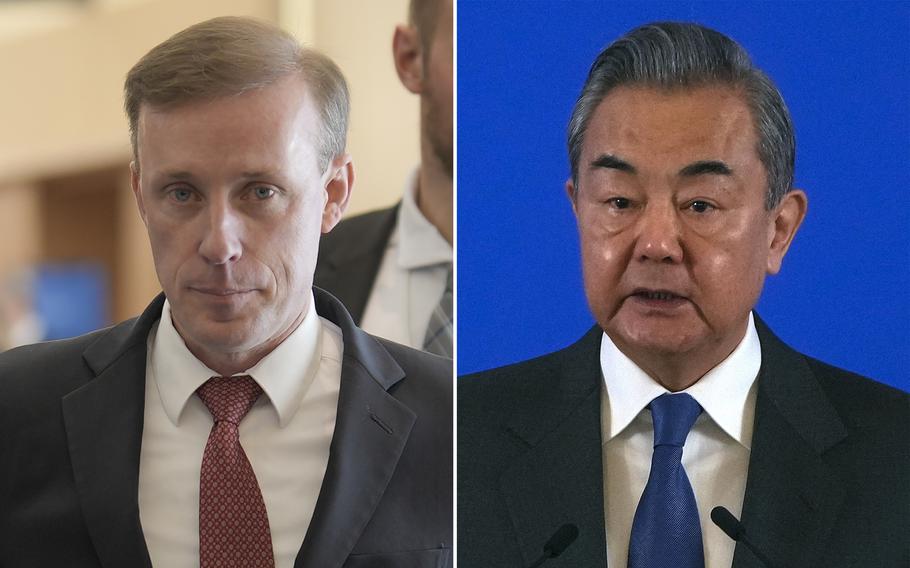The Taiwan Strait scenario has escalated as China sent over 30 airplanes and a flotilla of military ships to Taiwan amid a delicate diplomatic dance between the US China talks.

US China Talks intensifies military pressure on Taiwan (Photo: Google)
Taiwan Tensions Rising Amid US China Talks
This aggressive approach followed the announcement of top American and Chinese leaders meeting in Bangkok to discuss Taiwan and other important issues.
From Friday to Saturday, China’s military sent 33 planes and six naval warships around Taiwan for a show of force. Suddenly, 13 warplanes crossed the Taiwan Strait’s symbolic but unofficial border. Seeing the gravity of the situation, Taiwan mobilized its forces to monitor and stop these worrying operations.
Top Chinese and U.S. officials had a 12-hour, two-day marathon session in Bangkok to discuss diplomatic issues. In anticipation of a conversation between U.S. President Joe Biden and Chinese leader Xi Jinping, these talks focused on Taiwan to de-escalate superpower tensions.
U.S. national security adviser Jake Sullivan urged Chinese foreign minister Wang Yi to use diplomatic power to address Iran’s assistance for Houthis assaulting Red Sea merchant boats. China’s foreign ministry and the White House announced that both parties committed to communicating to resolve sensitive problems despite considerable divisions.
READ ALSO: US-China Talks Announcement: China Escalates Military Pressure On Taiwan
US Navy’s Provocative Move and Taiwan’s Preparedness Amidst Rising Tensions
The U.S. Navy sent its first warship into the straits dividing China and Taiwan since the election, raising military tensions. Since 1979, the US China talks about remaining Taiwan’s principal backer and weaponry supply.
President Biden’s departure from “strategic ambiguity” and willingness to protect Taiwan if attacked has soured relations. Biden’s national security team faces substantial hurdles from this attitude and worldwide crises including the Ukraine–Russia war, Red Sea Houthi strikes, and Israel–Gaza conflict.
China’s faltering economy may make it more likely to clash with the US. Military posturing contrasts with Taiwan’s recent political environment, where President-elect Lai Ching-te’s Democratic Progressive Party campaigned on self-determination and rejection of China’s threats.
Taiwan prepared for the geopolitical chess match as military conscription was prolonged due to China’s military threat. Under rising Chinese pressure, daily air force flights, and an uncertain future, the drama develops with each twist and turn, echoing the delicate balance of US China talks and their possible consequences on Taiwan.
READ ALSO: China Proposes International Conference For Gaza Peace Amid US-Israel War Stance

















































